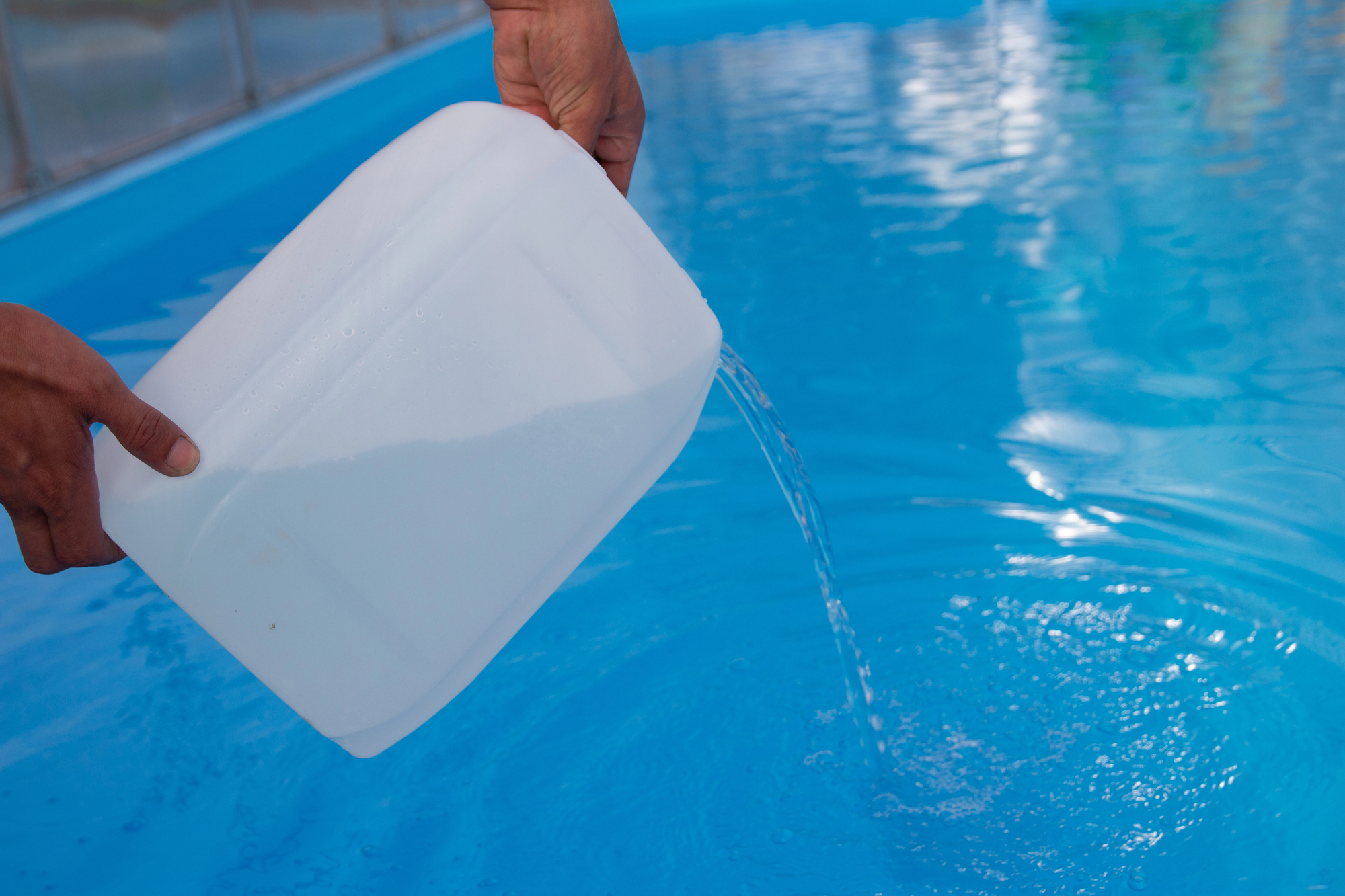Using Pool Chlorine Keeps Your Swimming Pool Safe
Swimming in unsanitized water can cause swimmer’s ear, diarrhea, and several different skin infections, including athlete’s foot. Using pool chlorine as a part of your pool maintenance routine ensures a safe and healthy swimming experience for you, your family, and anyone who swims in your pool.
When chlorine is added to a pool, it will kill harmful microorganisms and bacteria, like E.coli, salmonella, and germs that cause viruses like swimmer’s ear and diarrhea, in your pool water, prevent algae growth, and help control contaminants like sweat, body oils, and urine that swimmers introduce into the water.
How Pool Chlorine Eliminates Germs and Harmful Bacteria from Swimming Pools
When pool chlorine is used in a swimming pool, it forms hypochlorous acid, a weak acid that kills bacteria and other germs. This typically happens in a two-step process. First, pool chlorine acts as a disinfectant and kills bacteria and algae. Next, pool chlorine oxidizes and chemically destroys dirt and other foreign materials in the pool’s water, which can make it unsafe and unhealthy.

Where Does Chlorine Come From?
Chlorine is a chemical element that occurs naturally and is one of the basic building blocks of matter. It is produced from salt by electrolysis, a process that passes an electrical current through a brine solution (salt dissolved in water).
Types of Pool Chlorine for Sanitizing Your Pool’s Water
Pool chlorine is available in various formats and concentrations. Pools can be sanitized using chlorine-based compounds like calcium hypochlorite, sodium hypochlorite (liquid bleach), lithium hypochlorite, chlorinated isocyanurates, and chlorine gas. Each compound releases hypochlorous acid (HOCl), the active sanitizing agent, when it contacts water.
Each type of chlorine will destroy contaminants in your swimming pool’s water. Typically, liquid or powder chlorine types should be used for occasional super-chlorination, like shocking your pool, and chlorine tablets should be used for everyday chlorination since they dissolve slowly. Lone Star Pool Services highly recommends POOL Breeze® 3″ Chlorinating Tablets with 90% available chlorine since they’re formulated to protect against chlorine loss in direct sunlight and can be used in floaters, feeders, or skimmers. Swimming pool owners can purchase these easy-to-use, convenient chlorine tablets directly from Lone Star Pool Services.
Pool Chlorine Safety Tips
Pool chlorine is a chemical, and it’s essential to use it safely to avoid accidents, injuries, or potentially hazardous material situations.
Always store your chlorine in an excellent, dry location.
Always store pool chlorine out of the reach of children.
Don’t smoke around chlorine or pool chemicals since some types are flammable and can ignite easily.
Chemicals should be added directly to the pool or a water bucket.
Never mix different types of chlorine or allow your pool chlorine to become contaminated with leaves, dirt, or other debris.
Avoid breathing chlorine gas when opening chlorine buckets or chlorinators. Some people may find it helpful to wear a mask or respirator.
